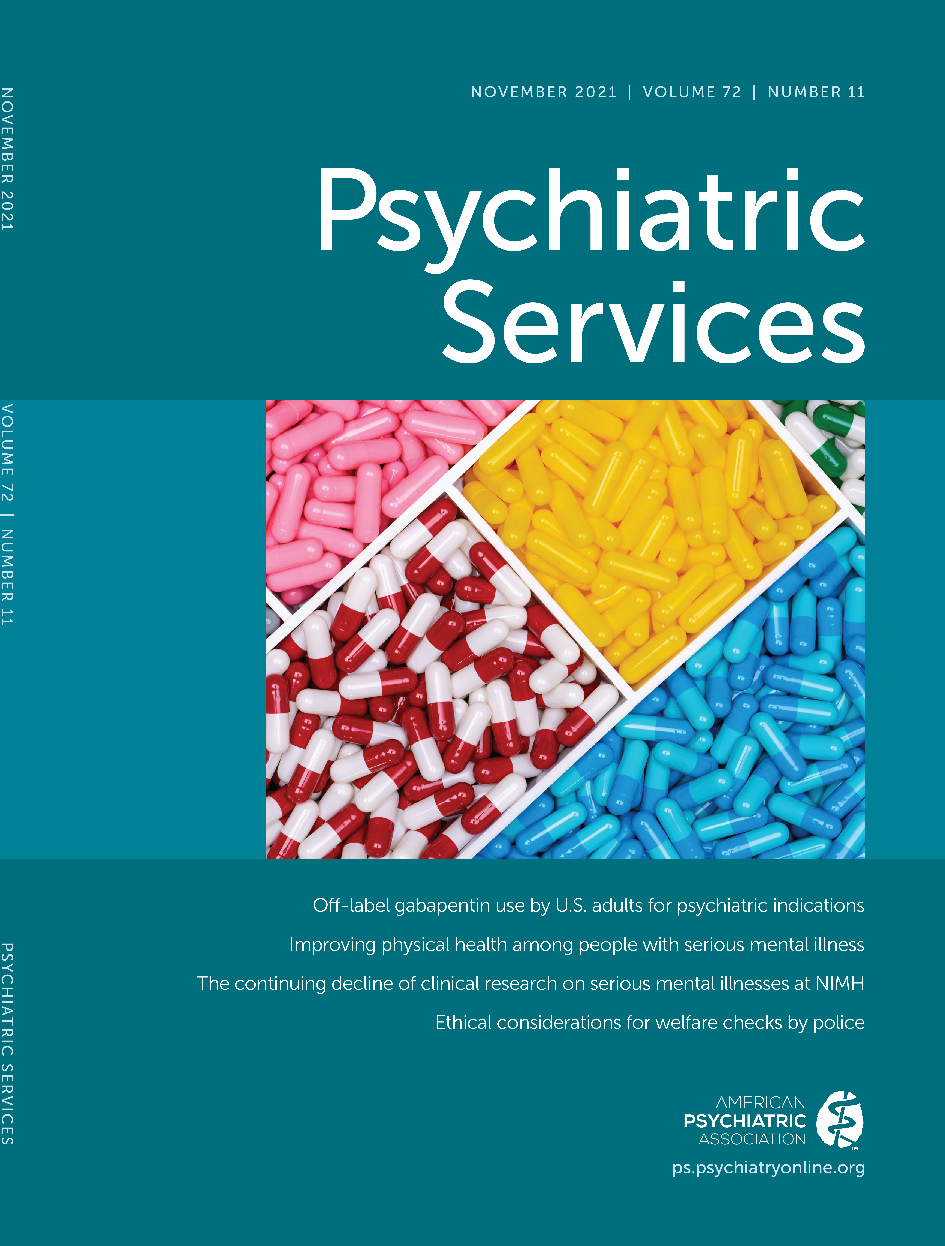The Need for Representative Research on Shared Decision Making
Supporting people to make evidence-based, preference-sensitive decisions about their own mental health treatment is paramount to recovery-oriented care. Shared decision making (SDM) is one clinician-driven approach to provide such support, offering a set of skills and behaviors to guide collaborative decision making. In this issue, Thomas and colleagues (1) review the growing body of work focused on SDM interventions for people with a serious mental illness. Although results of effectiveness studies of SDM for decision-related outcomes are promising, the review’s authors highlight several limitations, including a lack of diversity among trial participants. An additional limitation is the absence of people who are traditionally excluded from decision making, such as patients being treated involuntarily.
Participants across trials were mostly middle-aged White men from high-income countries. This narrow demographic limits how much researchers know about whether SDM works for other groups. Yet the problem goes much deeper than this. The evidence researchers use to populate SDM interventions and inform treatment decisions is plagued with the very same issue of nonrepresentativeness. Maximizing the relevance of SDM interventions requires consistent use of inclusive research practices.
Several factors lead to exclusion of people from society, and these factors often intersect, resulting in further disadvantage and marginalization. Most scientific research is conducted in high-income countries with high-resource settings and a small, privileged, yet unrepresentative minority of the global population. Research has historically often excluded people from diverse racial and cultural backgrounds and diverse geographies, those who have limited cognitive capacity, and those receiving involuntary treatment. The reasons for these exclusions are many and complex, reflecting the social exclusion of these groups as well as research practices that have evolved to view more inclusive research as difficult and costly.
For ostensibly ethical reasons, people are often excluded from research if they are deemed “acutely unwell” (e.g., suicidal or psychotic), have low cognitive capacity, or have a comorbid mental disorder or a disqualifying general medical problem. This desire to protect people from the risks of research means that the same people are left without good evidence about what might work for them. This disconnection feeds into a cycle of systemic exclusion from research. We know that the people involved in SDM mental health research, and in research more broadly, are the very same people who are otherwise more likely to expect and experience decision-related autonomy.
People who are treated involuntarily are routinely excluded from decision making. Critical treatment decisions are often made when people are least able to be involved and most likely to be excluded. The default position of policy and practice should be that people have the right to make their own decisions, including being afforded the dignity to take risks. The use of advance directives and other legal mechanisms to uphold decision-making autonomy is essential.
Although there is some crossover between the field of SDM and that of supported decision making (e.g., use of advance directives), both fields need to learn more from the other to harness the potential for people treated involuntarily to still make evidence-informed decisions. While SDM needs to systematically address the legal right of people to make decisions and to consider decisions beyond health care decisions, supported decision making lacks strategies for providing people with evidence-based information about the potential harms and benefits of treatment options.
Decision making that upholds human rights is about more than having effective legal mechanisms. When considering treatment in mental health, almost all options come with potential harms that people have the right to know about. Yet currently the best evidence available has serious limitations due to the narrow proportion of the population to which it applies.
Rather than accepting exclusion from research as the norm, we need to make research and clinical practice safe and inclusive for all. Upholding the rights of only some is simply not good enough. The mental health community needs evidence that is relevant to the global population and inclusive of marginalized groups, which means we need to know how best to facilitate their involvement. The responsibility is on our shoulders now, as researchers, to do better and to address the challenges associated with including truly representative samples.
1 : A systematic review of shared decision–making interventions for service users with serious mental illnesses: state of the science and future directions. Psychiatr Serv 2021; 72:1288–1300Link, Google Scholar



